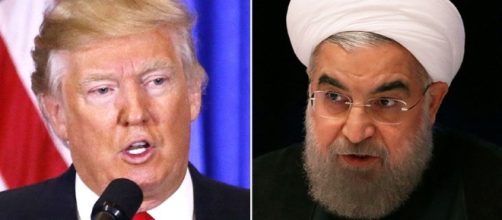The U.S. Treasury Department slapped new Sanctions on a variety of Islamic Revolutionary Guards Corps (IRGC) commanders and affiliates this Tuesday in a significant step towards holding the Iranian regime accountable for its support of terrorism and mistreatment of its people.
U.S. Treasury Department’s judgement
The new sanctions are being applied under U.S. House Resolution 3364, or the Countering America’s Adversaries Through Sanctions Act (CAATSA), which was signed by President Trump in August. CAATSA included a section which applied sanctions on Iran, and the most recent sanctions were a result of the U.S.
Treasury Department’s judgement and determination the terrorist designation of the IRGC applied to a wider range of IRGC affiliates.
The move is an expansion of President Donald Trump’s decision to sanction the IRGC last month, with the most recent set of sanctions applying to several branches and individuals within the IRGC network. This list includes the IRGC commander in chief, Mohammed Ali Jafari, and four other senior officials. The regime has categorically denied the charges of exporting terrorism and human rights abuses which led to the expanded sanctions.
NCRI welcomes decision
The National Council of Resistance of iran (NCRI), the leading Iranian opposition coalition, welcomed this decision by the U.S.
government and stated that these sanctions should be expanded even further to encompass all individuals and entities affiliated with the IRGC that are engaged in terrorism and domestic suppression. The NCRI also stated that the IRGC should be expelled from the region, and that “These measures are prerequisite to ending the war and bloodshed and establishing peace in the region.”
Implementing the most recent sanctions is an important means of responding to the Iranian government’s ongoing support of terrorism and recent ballistic missile proliferation.
Not to mention the continuing suppression of its people. The United States should not allow the regime to continue these belligerent actions that threaten the region, a message which has now been sent loud and clear.
Iran responds
The impacts of this action have already been felt, as Iranian regime has responded to the expanded sanctions by cutting back their ballistic missile program.
Mohamed Ali Jafari, one of the individuals impacted by the terrorist designation, stated on October 31 that “our missile ranges are 2,000 kilometres… This is enough for now.” This signals a massive shift in the policy of the regime as a result of the Treasury Department’s action, given that Ali Jafari had recently claimed that “the power of our missile capabilities…will continue without any hesitation.”
The expansion of the terrorism-related sanctions has clearly worried senior members of the regime. Admitting that the IRGC controls much of Iran’s economy, IRGC brigadier general Gholamreza Jalali said that “These sanctions will pull us all in and Iran’s economy will be completely sanctioned.” Jalali called the U.S.
government’s move a “very dangerous threat” to the IRGC and the regime as a whole.
EU must join effort
The NCRI noted that the IRGC’s control of the Iranian economy meant that other organisations, such as the European Union, must join in the effort to sanction and condemn the regime. The opposition group asserted that “deals with the IRGC are tantamount to fueling its belligerence, its terror and suppression machine, the expansion of its nuclear weapons program and the proliferation of ballistic missiles.”
Without a doubt, the U.S. government’s latest action against the regime in Iran will have a sizable impact and contribute to mitigating the threat it poses to the region. It is a significant step on a long road to justice, one that will require unity in the face of violence and oppression.


